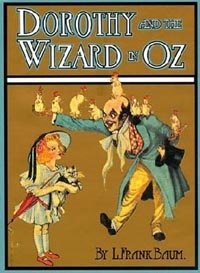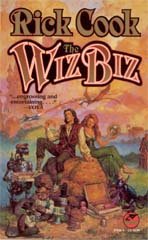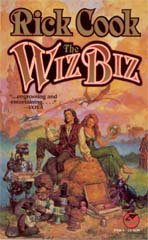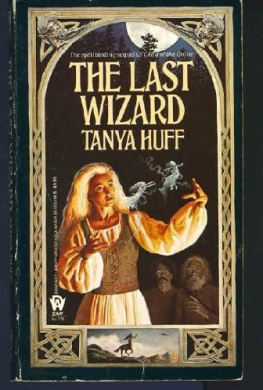Rick Shelley - The wizard at home
Here you can read online Rick Shelley - The wizard at home full text of the book (entire story) in english for free. Download pdf and epub, get meaning, cover and reviews about this ebook. genre: Romance novel. Description of the work, (preface) as well as reviews are available. Best literature library LitArk.com created for fans of good reading and offers a wide selection of genres:
Romance novel
Science fiction
Adventure
Detective
Science
History
Home and family
Prose
Art
Politics
Computer
Non-fiction
Religion
Business
Children
Humor
Choose a favorite category and find really read worthwhile books. Enjoy immersion in the world of imagination, feel the emotions of the characters or learn something new for yourself, make an fascinating discovery.

- Book:The wizard at home
- Author:
- Genre:
- Rating:3 / 5
- Favourites:Add to favourites
- Your mark:
- 60
- 1
- 2
- 3
- 4
- 5
The wizard at home: summary, description and annotation
We offer to read an annotation, description, summary or preface (depends on what the author of the book "The wizard at home" wrote himself). If you haven't found the necessary information about the book — write in the comments, we will try to find it.
The wizard at home — read online for free the complete book (whole text) full work
Below is the text of the book, divided by pages. System saving the place of the last page read, allows you to conveniently read the book "The wizard at home" online for free, without having to search again every time where you left off. Put a bookmark, and you can go to the page where you finished reading at any time.
Font size:
Interval:
Bookmark:
Rick Shelley
The wizard at home
PROLOGUE
This world once knew twenty gods, the sons and daughters of one couple. Their parents were so wrapped up in each other that they neglected their children, and the brothers and sisters turned to quarreling with each other. In time, the quarrels turned violent, deadly. The gods looked for allies, and for followers. At various times, one or another of the Twenty would look with favor on one of the religions created by men, and lend it his, or her, favor, giving power to that religion, molding it, and being molded by it in return. And using it.
In the Year of Our Lord twelve hundred and seven, Rome called a Crusade, not against the Saracens but against Christian heretics in France. The White Brotherhood, long the dominant order of the orthodox Roman Church, rose to defend itself against the heresy of the Blue Rose, centered in the Burgundy region of France. People and towns were burned, but the evil of the Blue Rose was not totally extinguished. It merely went underground, biding its time, preparing for a comeback. And a comeback was possible. The Blue Rose had the power of gods behind it, an alliance of five gods of the eighteen who remained of the Twenty. But the White Brotherhood also had gods behind it. Mikel, the Unseen Lord of the Mysteries of the White Brotherhood, had taken the Roman Church under his sway at the time of Constantine. Church and god had accommodated themselves to each other over the years. Mikel's sway was never seriously challenged by any of his siblings until the growth of the Blue Rose.
The Crusade in Burgundy did not end that conflict, though Mikel and his allies hoped it had. Thirty-one years later, in 1238, in the month of August, a great battle was fought among the gods and their armies. This battle was the culmination of the war for the domination of the Christian Church in Europe, a battle without mercy. In one horrendous confrontation that stretched from mother earth to the land of the gods, the heretics were destroyed, root and branch, leaving only powerless remnants behind. The Blue Rose would not rise again. The victory of Mikel and his allies was complete.
In my solitude, I shed tears for all who died in the battle that was centered on the village of Mecq. Gods, mortals, demigods, and demons died in the fighting. The roster of the old gods was shortened by a third. The dead included Carillia, who had long been the most gentle and loving of the gods.
Had the horror of Mecq sufficed to end the ages of deadly feuding among the divine siblings, it would have been a brutal but perhaps-ultimately-worthwhile lesson. But there was no sign that the deities would take that lesson. If anything, their bitterness toward each other, and toward the parents who had abandoned them in disgust and self-reproach, increased. For a time, they might lick their wounds and spare the mortal world their deadly conflict, but I had little hope that any respite would last long.
Pessimist that I was and am, I still had no idea that the fighting would resume even before the wounds of Mecq had time to heal. The old war had ended, but the seeds of a new conflict had already been sown.
CHAPTER ONE
The battle was over. A dirty haze hung low over the village of Mecq-smoke and steam, wispy and malodorous, smelling of rotten eggs and rotting flesh-but the sun would soon cut through the fog. Even in the smoky haze, the promise of a rainbow could be seen. Life would go on.
The Wizard Silvas, spearpoint of the battle for the White Brotherhood, had been one of the gravely wounded, brought to the church of Mecq unconscious, with the rest of the wounded. And the dead. It had been difficult to tell that he was yet alive.
Silvas regained consciousness and began chants of healing for himself. In his weakened state, it would be a long and difficult magic. Then he noticed Carillia at his side, and he saw that her injuries were worse than his own. A goddess she might be, but she was dying.
"You have always been my heart," Carillia whispered to him. Maria Devry, the daughter of the dead thane of Mecq, helped support Silvas as he rolled over onto his side, closer to Carillia. Maria was still holding Silvas when Carillia kissed him and infused him with her divinity. A bright white light illuminated all three of them, and the gift also passed into Maria.
When the light faded, Carillia was dead, as were many others. Silvas could not change that. But the divine power she had given him let him heal all of the wounded. That done, Silvas's work in Mecq was finished.
Silvas and Maria descended the steps of the church hand in hand, linked for all time by the gift of Carillia, and walked toward the column of smoke that concealed the entrance to the wizard's castle.
A week in Mecq had aged Silvas visibly. There were new wrinkles in his face. His eyes-dark gray, almost black, with flecks of lighter color-seemed to have sunk deeper in his face. He looked more gaunt than before. In his present weakness, he looked almost frail despite his brawny, muscled body. His hair, now wet, looked a dirty brown. A bath would bring back the lighter brown, streaked with sun-bleached blond.
Maria had been changed as well, not by a week of trial, but by the instant in which Carillia's divinity had flooded over her and Silvas. Her dark bluish-gray eyes had a new depth to them, a look of wisdom rare in one of only sixteen years. Although she was nearly a foot shorter than Silvas, she gave the impression of being nearly as tall, even when they stood next to each other. On their first meeting, Silvas had thought Maria attractive in a wholesome, rural way. Now she carried herself with a new poise that seemed to have turned her into a beauty. While Silvas seemed hunched over by the burdens he had carried, Maria stood straight and tall. Her features were delicate and pleasant, her hair a glossy dark brown.
Silvas and Maria had not yet had time to digest the gift they had received from Carillia, but they could feel the new divinity they shared, an intimacy that might take years to fully explore. It was as if much of Silvas's experience and maturity had passed into Maria.
Though the Glade, Silvas's castle, was hundreds of miles from Mecq, it was also as close as the pillar of smoke that stood in the village green. Carillia's body was borne before Silvas and Maria by an honor guard that had come out of the castle: equal numbers of gurnetz, Braf Goleg and his lupine soldiers; and esperia, Koshka and his porcine kindred. Bay, Silvas's immense, sentient horse and counselor, and Bosc, Bay's esperia groom and also counselor to the wizard, followed Silvas and Maria toward the pillar of smoke.
The people of Mecq and the churchmen who had gathered to help battle the Blue Rose watched the slow procession in silence, honoring the sacrifice of Carillia. Knowledge of her divinity was just beginning to circulate among the villagers.
Silvas and Maria stopped to look at the people standing in front of the church. Bosc and Bay went around them, following Carillia and her honor guard into the pillar of smoke. Silvas raised a hand, as if in benediction. He thought to say some final words, but could find no appropriate message. After a moment, he took Maria's hand again and they passed through the smoke, out of Mecq, and into the Glade, also known as the Seven Towers.
The brightly colored birds of the Seven Towers, each a single brilliant hue, came to greet Maria and Silvas and to sing their dirges over Carillia. Maria and Silvas stopped in the courtyard, as had the others.
"My mind is numb," Maria told Silvas as she watched the birds caper overhead. They seemed to show all of the colors of the rainbow, one color to a bird. Their song reached inside to touch the souls of those who heard it, both celebration and requiem.
Font size:
Interval:
Bookmark:
Similar books «The wizard at home»
Look at similar books to The wizard at home. We have selected literature similar in name and meaning in the hope of providing readers with more options to find new, interesting, not yet read works.
Discussion, reviews of the book The wizard at home and just readers' own opinions. Leave your comments, write what you think about the work, its meaning or the main characters. Specify what exactly you liked and what you didn't like, and why you think so.






